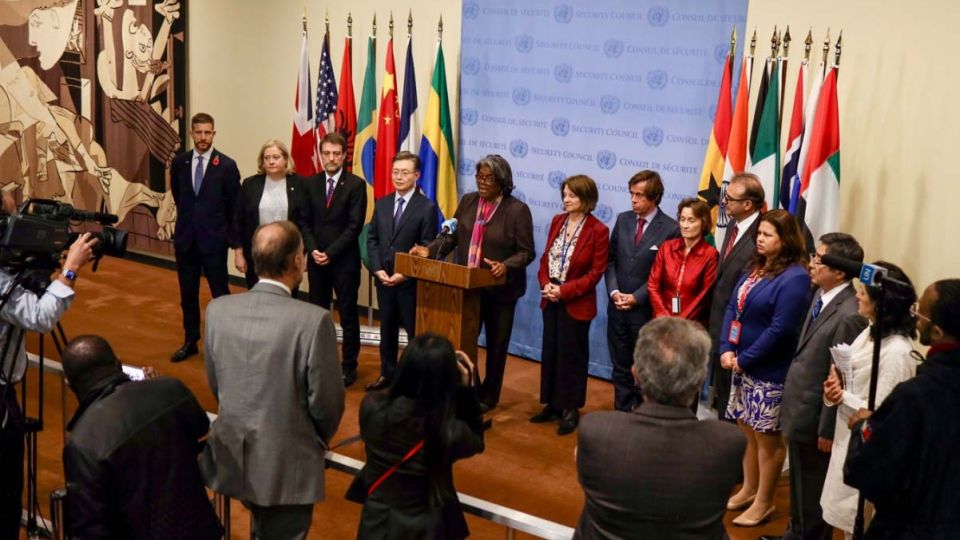November 7, 2022
SEOUL – North Korea’s ramped up missile provocations last week highlight the deepening divide between the West and Pyongyang’s allies China and Russia, building more tension on the Korean Peninsula.
North Korea launched an unprecedented number of missiles last week, prompting the United Nations Security Council to hold an emergency council session on Friday to discuss ways to handle the multiple sanctions violations by Pyongyang.
The meeting, however, failed to draw a unified voice to hold North Korea liable for its violations, as China and Russia — its close allies and permanent UNSC members — justified the North’s military provocations as self-defense measures.
US Ambassador to the UN Linda Thomas-Greenfield strongly condemned North Korea for launching a “staggering” 59 missiles this year, and criticized the UNSC for its “lack of action.”
“For a UN member state to so flagrantly violate the Security Council resolutions, and all that the UN Charter stands for, is appalling,” Thomas-Greenfield said, referring to North Korea.
“Equally appalling is the Council’s deafening silence on this issue.”
The US ambassador said North Korea “has enjoyed blanket protection” from two UNSC member countries, pointing at Russia and China without naming them directly.
“These members have bent over backwards to justify the DPRK’s repeated violations,” she said, referring to North Korea by its official name, the Democratic People’s Republic of Korea. “And, in turn, they have enabled the DPRK and made a mockery of this Council.”
“You don’t get to abandon Security Council responsibilities because the DPRK might sell you weapons to fuel your war of aggression in Ukraine, or because you think they make a good regional buffer to the United States,” she said.
The US White House had said earlier that Russia is “covertly” being supplied with a “significant” number of artillery shells from North Korea for its war in Ukraine.
China’s UN Ambassador Zhang Jun said Pyongyang’s missile launches are directly linked to the US-South Korean military exercises that resumed after a five-year break. He also said the US Defense Department virtually announcing the main goal of its strategy is to end the North Korean regime in the 2022 Nuclear Posture Review also provoked North’s military actions.
“The council should play a constructive role rather than always stressing pressure,” Zhang said. “Under the current circumstances, the council should in particular strive to mitigate confrontation, ease tensions, and promote the political settlement.”
Russia’s Deputy UN Ambassador Anna Evstigneeva also blamed Washington for exerting pressure and adding more sanctions to force Pyongyang to unilaterally disarm.
Since Wednesday, North Korea has launched 30 ballistic missiles, including an intercontinental ballistic missile that failed mid-flight. The barrage also included one ballistic missile crossing over the de facto maritime military border with South Korea for the first time since the two Koreas separated at the end of the 1950-53 Korean War.
North Korea has said its missile launches are part of its self-defense measures against the US and South Korea that were conducting a joint aerial exercise “Vigilant Storm,” for five days from Monday.
Seoul’s Defense Ministry extended the military exercise by one more day to Saturday, as Pyongyang test-fired two dozen of sanctions-breaching missiles from Wednesday.
Seoul and Washington carried out their largest-ever Vigilant Storm exercises this year, including 100 US and 140 South Korean aircraft for roughly 1,600 sorties.


